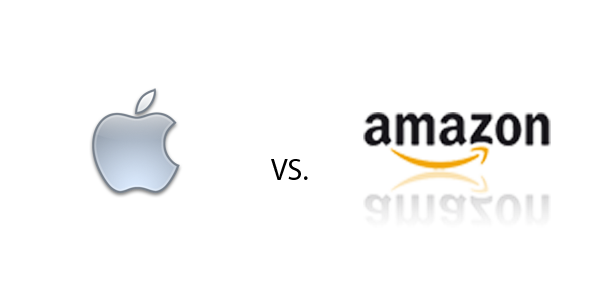
There was so much drama and upheaval in the eBook, magazine, and subscription services on iOS yesterday as Amazon, Barnes and Noble, and others caved to Apple’s demands that they either get a 30% cut of in-app sales or all links to external purchasing systems be removed, that it is easy to assume that all this comes down to one word – GREED. But what if it comes down to one different word.
What if instead of this being all about Apple and the word “greed”, what if it all comes down to Apple and the word “Amazon”? What if this entire episode is all about Amazon, with a bit of Netflix, Hulu and Spotify mixed in rather than Apple just “wanting their cut”.
Sound crazy? Well, think about this …
What if in-app purchases aren’t about revenue, but about controlling the competition? Apple is no longer a computer company. It’s a company built around an incredibly lucrative ecosystem of movies, music, books, apps, and the hardware that showcases them. Now, look at who just had their applications crippled: Netflix, Spotify, Amazon Kindle, B&N NOOK, Hulu+. All are applications that compete directly with products that Apple offers through iTunes! This wasn’t about revenue, this was about being the alpha dog over the competition, and letting everyone know who was in control here.
It makes a great deal of sense. Now, it caught everyone from newspapers and magazines to eBooks and subscription media, but that was probably a calculated risk. Some companies, like the New York Times, agree and pay it. Others, like the Wall Street Journal, choose not to. But more importantly, it puts a stumbling block in front of Apple’s competition in movies, music, and books. Not enough to cease business, but enough to make things slightly tougher and remind everyone whose playground it is.
This also explains the sky-high cut Apple requested. Sure, it’s easy for Apple to first point to 30% as a standardized number. App sales give 30% to Apple, so why not media as well? But that’s simplifying the situation immensely. A flat fee makes sense in some areas, but not in media, where margins are super tight, something Apple knows all too well from iBooks. As we have discussed before, 30% is most of, if not all of, the profit these eBookstores and subscription companies make after licensing fees, paying publishers, etc. A more reasonable compromise might have been something in the range of 10-15%. In fact, Kobo’s CEO was quoted in the Wall Street Journal as saying that only 50% of their iOS user base downloaded books on the iPhone instead of on computers, so a 10-15% cut, while still a big bite out of margins, is somewhat reasonable if Apple truly wants a slice. But this was never directly about revenue, this was about reminding the competition who has the upper hand.
It’s pretty masterful if that’s the plan. We’ve spent the last 24-48 hours debating what Apple is thinking because we as consumers are only looking at the here and now. Apple has shown themselves to be long-term strategists, and they are looking four, five, six steps ahead. It’s not about cash and it’s not about apps, it’s about the fear of a world where iTunes is not the dominant media hub for iOS and OS X. This heads that off, or at least establishes boundaries for companies who would encroach on Apple’s media empire. In other words, ¡Viva iTunes!
What do you think? Are we seeing conspiracies in the shadows? Sound off below!